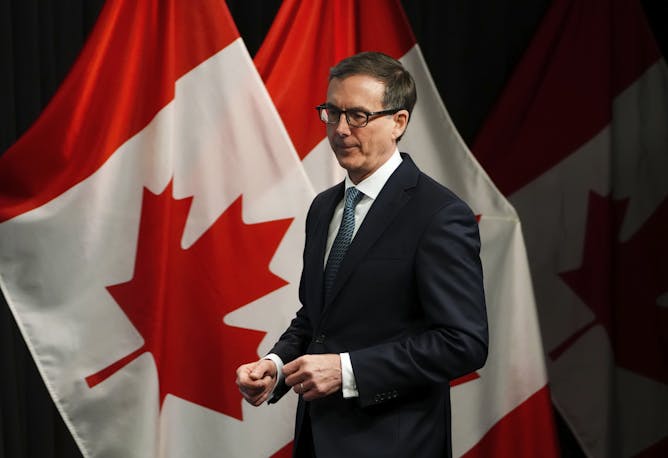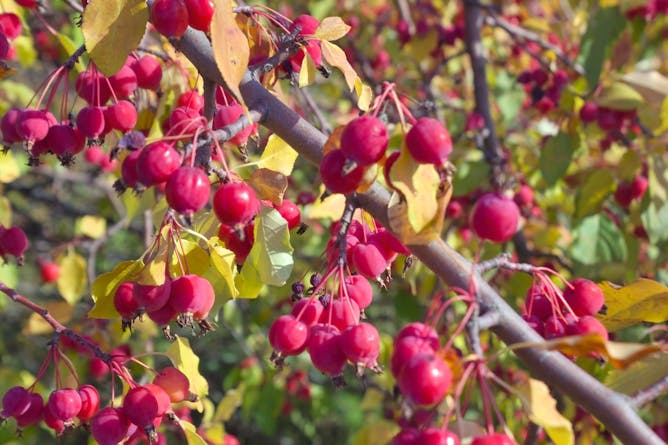|
|
|
|
Yesterday, the Bank of Canada announced a 0.5 per cent interest rate hike — its biggest one-time increase since 2000 and the second time the bank has increased its interest rate in two months. While it might seem like the central bank is coming to rescue us from inflation yet again, that might not be the case this time around.
Today in The Conversation Canada, Jacqueline Best from the University of Ottawa debunks why monetarism — the idea that inflation can be fixed by simply stopping the central bank from circulating money in the economy — doesn’t work. Best writes that since most money is actually created by private banks, not the central bank, any attempts to limit the central bank’s money supply are doomed to failure.
Best argues that if we truly want to solve the inflation issue, we need to understand and address the underlying causes of the problem. While there are no simple solutions to our current inflationary challenge, Best is adamant about Canada needing a holistic approach. She points to U.S. President Joe Biden’s recent strategy of pushing companies to reduce costs, rather than wages, as one such example.
Also today:
|

|
Eleni Vlahiotis
Assistant Editor
|
|

The Bank of Canada announced a 0.5 per cent interest rate increase on April 13, 2022, in a move to quell Canada’s high inflation.
THE CANADIAN PRESS/Sean Kilpatrick
Jacqueline Best, L’Université d’Ottawa/University of Ottawa
While central banks did help mitigate a COVID-induced recession, they don’t have the power to solve our inflation problem.
|

Bosnian Serbs march carrying a giant Serbian flag in Sarajevo, Bosnia, on Jan. 9, 2022. The country’s Serbs celebrated an outlawed holiday with a provocative parade showcasing armored vehicles, police helicopters and law enforcement officers with rifles.
(AP Photo)
James Horncastle, Simon Fraser University; Jack Adam MacLennan, Park University
Russia’s future influence on global affairs may not be limited to Ukraine — it may run through Bosnia-Herzegovina. To understand why, we need to think about how past conflicts shape today’s politics.
|

Ukrainian refugees board transport at the central train station in Warsaw, Poland on April 7, 2022.
(AP Photo/Czarek Sokolowski)
Yvonne Su, York University, Canada
Poland has an opportunity to emerge from this refugee crisis a more united, more accepting and economically strong society, but first they need to have tough conversations about immigration.
|

Wild apples contain genetic diversity that can be reintroduced into domesticated varieties.
(Shutterstock)
Tommy Davies, Dalhousie University
Studying how contemporary apples have changed drastically from their origins and preserving wild varieties can help maintain their diversity.
|

The series Euphoria, which has aired on HBO since 2019, continues to be a popular hit.
(@euphoria/Instagram)
Anne-Sophie Gravel, Université Laval
Euphoria tackles the status quo head on with an esthetic that transgresses the codes of television, while criticizing several taboos and social issues.
|
La Conversation Canada
|

Une personne peut avoir plusieurs milliers de pensées par jour, dont beaucoup peuvent être classées comme spontanées ou involontaires.
(Shutterstock)
Francois Richer, Université du Québec à Montréal (UQAM)
Les émotions jouent un rôle clé dans de nombreux types de pensées spontanées. Même les microémotions, souvent éphémères et inconscientes, peuvent affecter les pensées et influencer l’attention.
|
Ukraine Invasion
|
-
Dale Pankhurst, Queen's University Belfast
A lot of the fighting in Ukraine is being done by non-state militias, some with a chequered history.
-
Mandira Bagwandeen, University of Cape Town; Noncedo Vutula, University of Cape Town
The sourcing of wheat has factored into the political and strategic decisions and security of many countries.
-
Stephen Whitefield, University of Oxford; Paul Chaisty, University of Oxford
Many Russians hanker for the old USSR, but it has more to do with cultural and economic nostalgia than wanting the old Soviet empire back.
|
|
Culture + Society
|
-
Simranjit Khalsa, University of Memphis
Originally a spring harvest festival, Baisakhi acquired religious significance after the10th Sikh guru created the Khalsa, a distinctive Sikh identity, on this day.
|
|
Environment + Energy
|
-
Garikai Martin Membele, University of Zambia; Maheshvari Naidu, University of KwaZulu-Natal; Onisimo Mutanga, University of KwaZulu-Natal
Flooding is arguably even more problematic in informal settlements because of the lack of planning.
|
|
Health
|
-
Barbara Jacquelyn Sahakian, University of Cambridge; Christelle Langley, University of Cambridge; Martine Skumlien, University of Cambridge; Tianye Jia, Fudan University
Cannabis use is linked to poorer memory, attention and mental health.
|
|
|
|
| |
| |
| |
| |
|
|
|
|
|
|
|